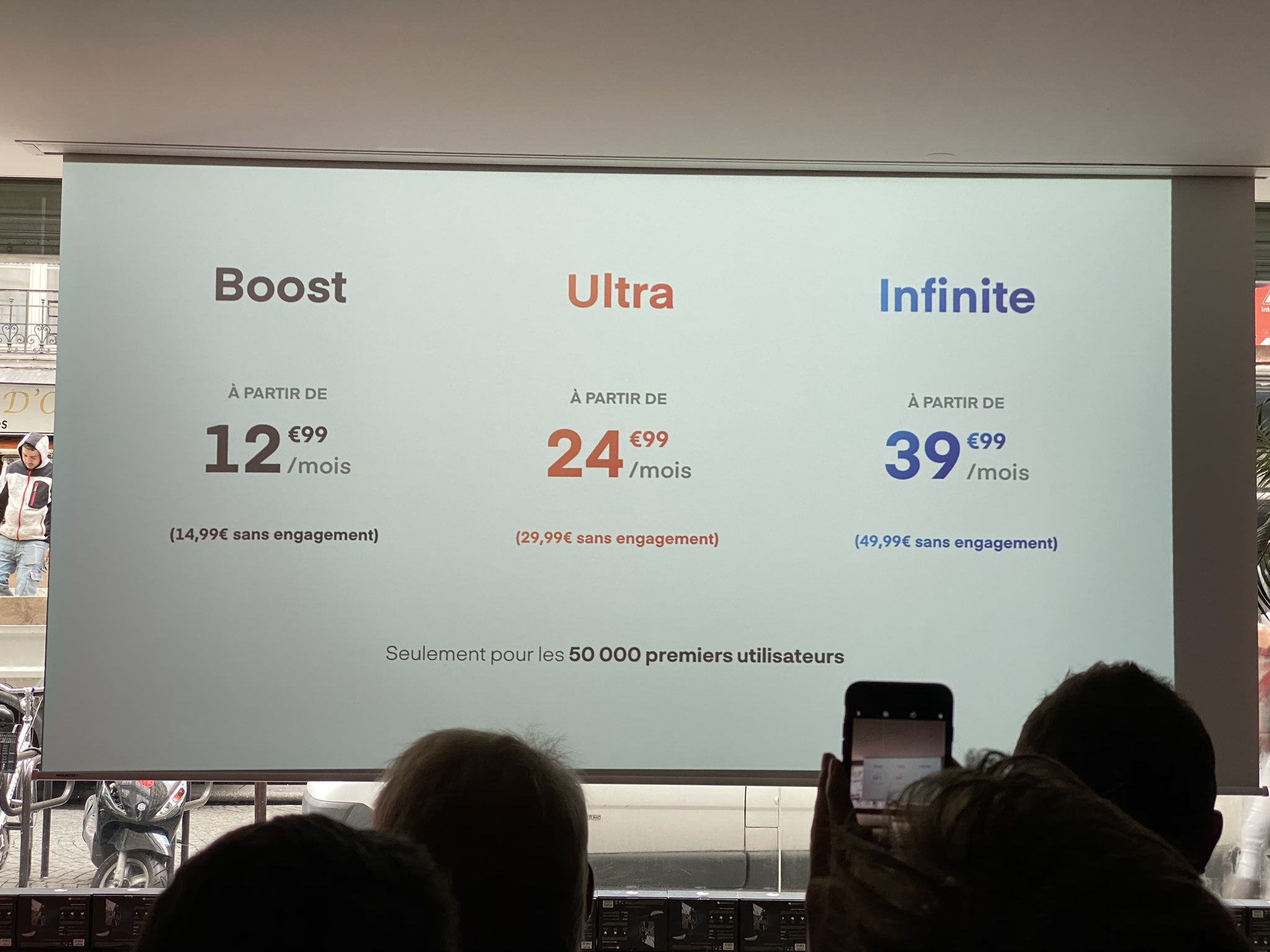Blade, the French startup behind Shadow, held a press conference this morning to announce some product news as well as some corporate changes.
Shadow is a cloud computing service for gamers. For a monthly subscription fee, you can access a gaming PC in a data center near you. Compared to other cloud gaming services, Shadow provides a full Windows 10 instance. You can install anything you want, Steam, Photoshop or Word.
Right now, the company offers a single configuration for $35 per month with eight threads on an Intel Xeon 2620 processor, an Nvidia Quadro P5000 GPU that performs more or less as well as an Nvidia GeForce GTX 1080, 12GB of RAM and 256GB of storage.
The startup is moving away from a single configuration to offer three different plans. On February 2020, customers will be able to chose between three plans — Boost, Ultra or Infinite.
- Boost: Nvidia GTX 1080 GPU, 3.4GHz with 4 cores CPU, 12GB of RAM, 256GB of storage
- Ultra: Nvidia RTX 2080 GPU, 4GHz with 4 cores CPU, 16GB of RAM , 512GB of storage
- Infinite: Nvidia Titan RTX GPU, 4 GHz with 6 cores CPU, 32GB of RAM, 1TB of storage
In the U.K., Boost costs £12.99/£14.99 per month, Ultra costs £24.99/£29.99 and Infinite costs £39.99/£49.99 per month. You get the lower price with yearly subscriptions.
In France, Germany, Belgium and Luxembourg, plans cost €12.99/€14.99, €24.99/€29.99 and €39.99/€49.99 respectively. Plans will become more expensive after the first 50,000 customers — pre-orders start today. New plans aren’t available in the U.S. for now.
It’s worth noting that you’ll be able to add an option to get more storage with any plan. Storage plans include 256GB of SSD performance — anything above that will perform like a more traditional HDD. Shadow is using Intel Xeon W3200 CPUs on the new configurations.

OVH founder and chairman Octave Klaba also announced a new partnership with Shadow. OVH is going to take care of Shadow’s infrastructure and become the cloud hosting partner going forward. The new servers will be rolled out in OVH data centers.
In other news, Shadow is launching a new interface specifically designed for TVs and mobile devices. The launcher now lists all your games. You can tap on a game to launch the game directly without going through the regular Windows interface. The update is available on Android TV, iOS and Android. The tvOS update should land next week.

Competition is heating up
Google is about to launch Stadia on November 19th. Microsoft is working on Project xCloud. Nvidia has its own cloud gaming service. In other words, cloud gaming has become an incredibly crowded market.
Shadow has been around for a few years now. In addition to refining its streaming technology, the company emphasizes everything you can do with Shadow that you can’t do with a more limited cloud gaming service.
“We’re the only one to offer a full PC. You can stream, work, do some Photoshop, do some SolidWorks,” Shadow co-founder Emmanuel Freund said. “We’re the only one to offer 244Hz monitor support, we’re the only one to adapt to all screens.”
As a pure cloud gaming company, Shadow wants to be available on any platform. You don’t have to buy a Google Pixel phone or a PlayStation to access the service. You can launch your Shadow instance on Windows, macOS, Linux, Android, iOS, tvOS and Android TV.
And now, you can even imagine using Shadow with a mobile VR headset. After installing the Android app, you can launch VR games on your Shadow instance and access demanding games without a gaming PC.
Some corporate news
Shadow has raised another $33 million in October (€30 million) — it’s unclear who invested in this round. The company also raised some money from Western Digital and Charter Communications earlier this year. Overall, the startup has now raised $111 million since launch (€100 million).
There are now 70,000 Shadow customers across 8 countries. At $35 per month, the company is generation some significant monthly recurring revenue.
And Shadow has a new CEO. Co-founder Emmanuel Freund is stepping aside as CEO — he’s now in charge of strategy. Jérôme Arnaud is taking over as CEO. The company was probably looking for a more senior business profile for the next step of the company.